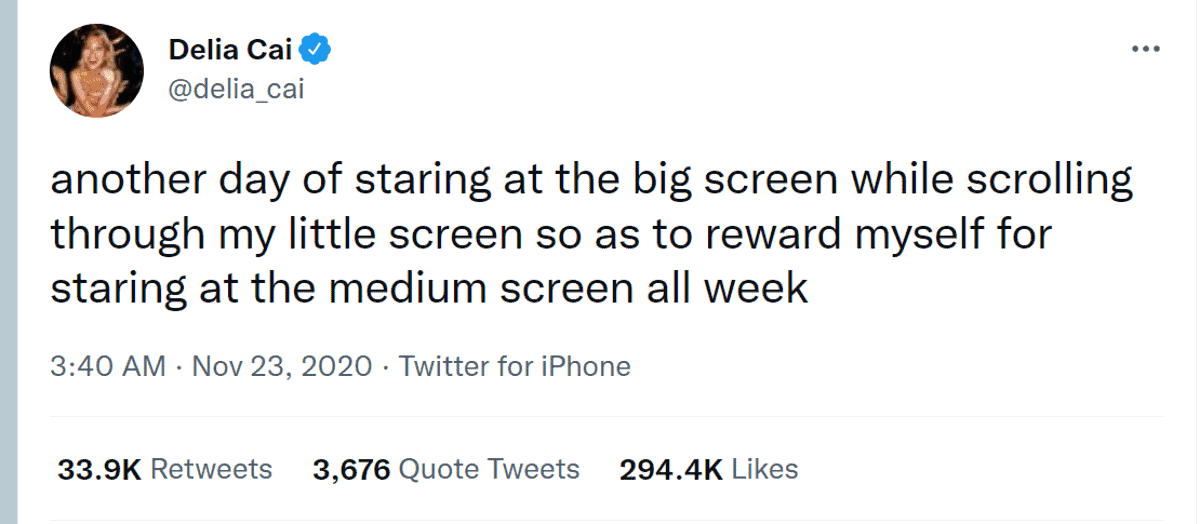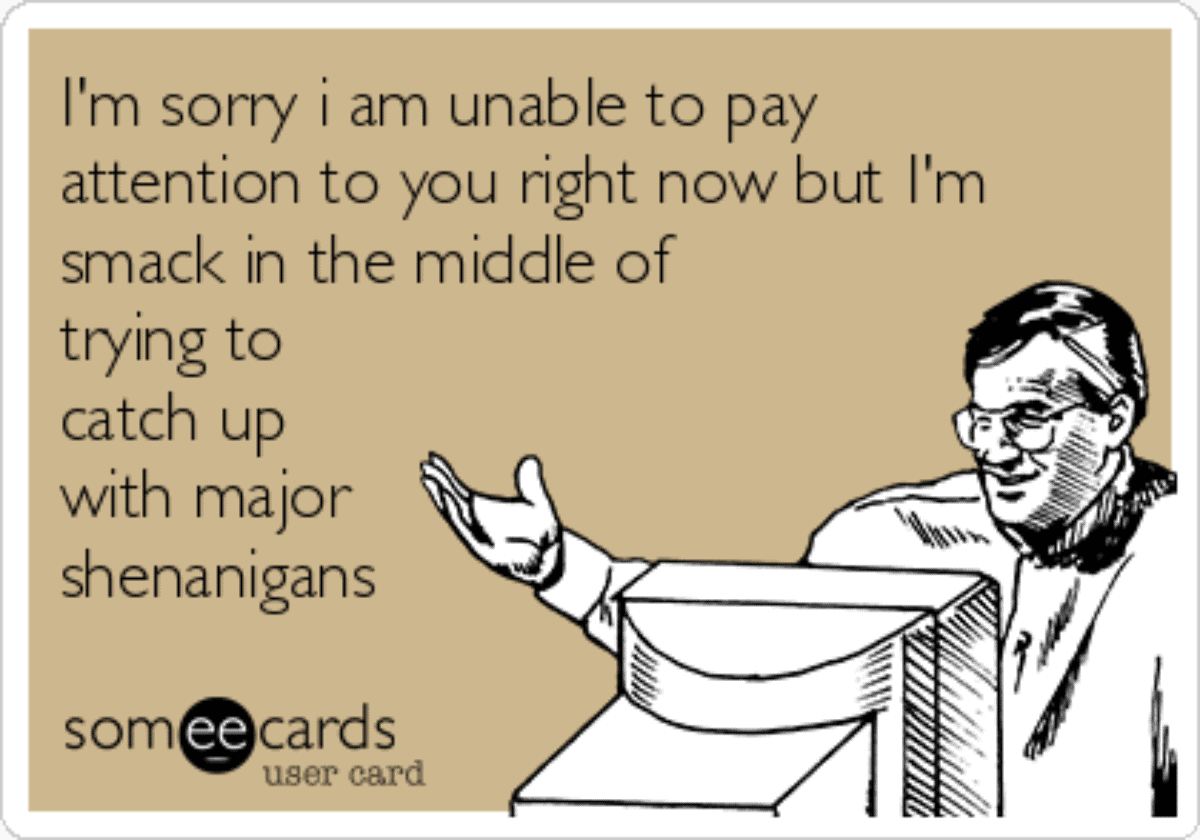Phones, laptops, tablets… where would we be without them? I often wonder how our ancestors survived. Probably why there weren’t many freelancers back then.
Devices are great – they let us work remotely and stay connected. The concern is… how many times have you tried to take a break from work, only to end up scrolling emails or social media and feeling even more drained?
Yeah, let’s fix that.
3 Ways to Unplug Yourself Completely
7 Tips to Get a Healthier Balance with Your Devices
Lastly
Today, I’ll share realistic tips to help you unplug properly AND set healthier habits for your use of technology (that won’t get you fired or lose all your friends).
Because our devices are always within arm’s reach, the idea of ‘unplugging’ can feel pretty unnatural.

After all, the average American spends more than 11 hours per day staring at screens. In fact, a recent study shows that a person touches their phone, on average, 2,617 times a day. Yikes!
Thing is, our lives should be embellished by technology, not be lived through it. Being glued to our devices has some seriously scary implications for our well-being and productivity.
Firstly, there are the obvious side-effects. Digital devices emit blue light, which is known to mess with our natural sleep cycles and cause digital fatigue. You probably already knew that.
But you know what’s scarier? Device addiction affects the way we think about the world.
Studies suggest that the rise of smartphone use has literally altered our brains, leaving us with much shorter attention spans and poorer memory spans.
PLUS, spending our lives glued to a screen means we’re ignoring the other thing in front of us: the real world! Countless gurus and spiritual mentors have linked mindfulness to happiness.
Mindfulness is all about being wholly present in the ‘now’ and noticing the little things around us.
If we’re able to unplug properly, we’re able to reconnect with life. Question is – how?
Digital detoxes can be very powerful. That’s when we physically remove ourselves from our devices for a period of time.
So to start with, here are 3 realistic ways to unplug completely, even in our modern lives.

For one evening every week, try switching off all your devices. No phones, no computers, no tablets, no cameras, etc. For example – maybe you decide every Saturday night is screen-free. With that, make the most of your time. Read a good book, cook something with a loved one, journal or revisit your self-care plan.
Dedicating an intentional evening to being offline is a great way to really zone into that activity, guilt free.
The next time you take a break, resist the urge to just grab your device. Instead, move your body and get out of the house. Walk the dog, walk to a park, or just stroll around your neighbourhood. Many studies, including a recent one done by Stanford University, suggests that walking can boost brain power.
You can also treat it as a mindfulness practice. Try a walking meditation, or simply give your surroundings your whole attention.
If you can, organise a weekend every few months where you go completely off-grid. Let your clients and family know that they won’t be able to contact you and leave your laptop and tablet at home. Once there, switch off your phone, and focus on relaxing or spending quality time with others.
It doesn’t need to be a 10-day silent retreat. A weekend out of town in a nice Airbnb out in nature can leave you equally refreshed and reset.
Unfortunately, many of us depend on our devices to work and socialize, which means we can’t always ditch our devices whenever we feel like it.
However, here are some everyday tips to help you use technology in a healthier way.
If you can’t go off-grid, bring the off-grid to you by creating tech-free zones within your home.
Move all your devices and chargers into a dedicated room, so you can’t charge them next to you. That way, instead of reaching over to grab your phone – you’ll have to physically haul yourself to the next room.
It’s not by accident that our devices and apps are so addictive. Everything about them – from the colors they use, to the sounds they make – is designed to grab our attention. However, there are small things you can do to beat their jedi mind tricks:
Many devices have an inbuilt feature that lets you track how much time you spend on them. This is great for tracking which apps you’re wasting the most time on and setting goals or limitations. For example, setting a limit of a half hour of YouTube a day.
You can also set limits on your internet browsing habits. Browsers like Chrome will let you block certain distracting websites – here’s how to set that up.

If you’re using your phone as your alarm clock, it’s way too easy to start each day by checking your notifications and social media from bed.
To disrupt this habit, I recommend buying a separate alarm clock and charging your phone in another room. That way, you can wake up and jump straight into a healthy morning routine without getting sidetracked by TikTok. Instead, you can do some exercise, meditate or stretch.
Social media is one of the biggest time-sucks on the planet. You open up Facebook for a quick peek. An hour later, you’re watching a video of some guy leading an army of chickens into battle.
Not to mention, social media usually just results in us feeling crappy about ourselves. Try and make an active effort to reduce your time on there. You don’t need to delete your Facebook account, but you can…
The more inconvenient it is to log in, the less you’re going to do it automatically.
Unplugging from our devices isn’t just about escaping silly distractions. It’s also an important part of work-life balance.
Devices can make it much harder to ‘switch off’ and stop working. We may find ourselves checking emails on weekends or replying to client Slack messages at stupid hours. But when you don’t define the lines between playing and working time, how can you ever relax?
The answer? Set firm boundaries for yourself between work and play. For example, no checking mails outside working hours, muting your Slack notifications on weekends, or making sure to turn on the out-of-office auto-responder. Don’t forget to politely inform clients of your working hours to manage their expectations.
Lastly, make sure you’re prioritizing sleep and recovery.
Many people like to create a power-down routine that gets them off the devices a few hours before bedtime. If you really need to use your devices, you might want to look into blue light blocking glasses, as studies have suggested they can help increase the production of melatonin in the evenings and get you a better night’s sleep.
Lastly – try and charge your phone in another room so you don’t scroll in bed (devices are a huge driver of revenge bedtime procrastination).
Looking to sleep better?
We’ve written an article just for that – check out the rest of our sleep tips here.
In this day and age, when everything is happening in real-time – it’s easy to feel as though we NEED to be constantly connected. It’s important to try and really question this ‘fear of missing out’.
Ask yourself – is the world really going to end if you don’t respond to that email until morning? What’s the worst that can really happen if you don’t reply instantly? In most cases – the urgency and pressure to be ‘always connected’ is something that we self-impose and tell ourselves.
Your brain is like a muscle and needs recovery time. The next time you switch off your phone – instead of feeling guilty, remember that taking downtime is an investment.
‘Unplugging’ is not laziness or antisocial behavior – it’s often the best thing you can do for your well-being, and your work.
Daren Low is the founder of Bitcatcha.com. With over a decade’s experience in website development and internet marketing, Daren is a top authority on anything to do with building and managing an online business. Pick his brain today by connecting via Linkedin and Twitter.